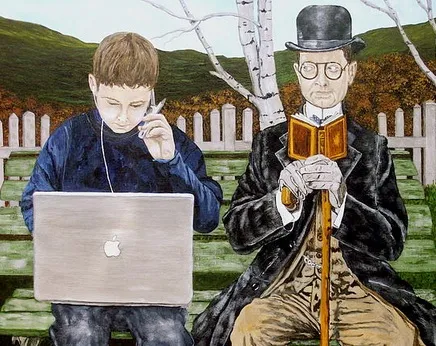5 tips to address potential challenges while hiring experienced employees for your startup
Hiring experienced employees for your startup: Part 2 - 5 tips to address potential challenges

Even in the corporate world, many new recruits at the senior level struggle to settle in, often finding the internal teams highly judgmental and hostile. But corporate employees are relatively more acquiescent to hierarchy; the challenges in startups could be significantly more severe, affecting both the existing team and the experienced new recruit. Here are 5 tips for proactively addressing these challenges and ensuring that hiring Mr Experienced will genuinely add value to your company.
Shortlist by skills but select for attitude
In her article on startup hiring, Valerie Wagoner – CEO & Founder of ZipDial – writes that, “It is a true achievement to inspire a growing organization to maintain the passion of the founding team. Finding this same passion in the senior executives you recruit will be critical to maintaining your company’s drive and culture. While experience, skills and influence in the market are the qualities evident on a potential executive’s resume, the softer factors of attitude and passion can be just as important.” Rajat Garg, CEO of SocialAppsHQ, goes on to talk about how you shouldn’t hire people with >10 years in large corporate because they get too used to process and structure. According to his article – How Not to Hire in a Startup - one should hire such employees only if “they hate their previous jobs primarily due to it (structure & processes).”
“Start dating early” – with the team
Valerie once again put this very well – “...given that the right person will inevitably be transitioning from a senior level position at another company, wrapping up the previous assignment will take time.... have early conversations with potential candidates over lunches or coffees.” I would just take her thoughts a step further and suggest that you get the potential recruit to spend time with the team before formally coming on board. Getting the person to do some info-shares or guiding team members could be a great way to help build his/ her credibility with the team. It could also be a good way to see how he/ she gets along with the team and avoid any potential hiring disasters. I would recommend that during these interactions, do not share your hiring intentions with the team; let them interact with an open mind.
Hold on to the big announcement
Once you have hired Mr Experienced, you will be eager to make your big announcement. Some startups don’t even wait for the person to come on board. I would warn against this. For one, it would really cut a sorry figure in front of the external world if you parted ways with the person soon after your announcement. More importantly, avoid letting the internal team feel threatened by the external attention you shower on the new recruit. In fact, I would suggest that you genuinely let the new person get a feel of the entire company before formalising his/ her role. You may even realise a couple of months down the line he/ she is better suited to a role and work arrangement that is slightly different from you initially had in mind.
Encourage getting the hands dirty
During this ‘silent’ period suggested above, encourage the experienced recruit to get involved in even some of the very operational tasks. Not only is it necessary for him/ her to fully appreciate the various types of work that the team does, but it will also tell you a lot about the attitude and fit. But most importantly, it will help bridge that gap with the younger team. If the team realises that the new person is willing to do the heavy-lifting, it will automatically reduce some of the ‘what does he think of himself’ perceptions that may exist.
Manage your own reactions
This is probably the most critical tip; you have to be extremely careful about you behave with the new person, in front of the team. Remember that your young team will always take their cues from you. It is highly probable that you will have differences of opinion with the new person but be mindful that these should not get escalated in front of the team. You may sometimes find yourself getting upset with him/ her and wanting to share your feelings with your team, which you obviously feel much closer to. Don’t; that will be the end of any trust or respect that the team has for the new person. Sometimes, your team members may come to you with complaints about the new person. Hear them out but encourage them to directly communicate and resolve the issues. Of course, you will discuss the issues directly with the new hire but ensure that you aren’t seen as the resolution point for everything.







